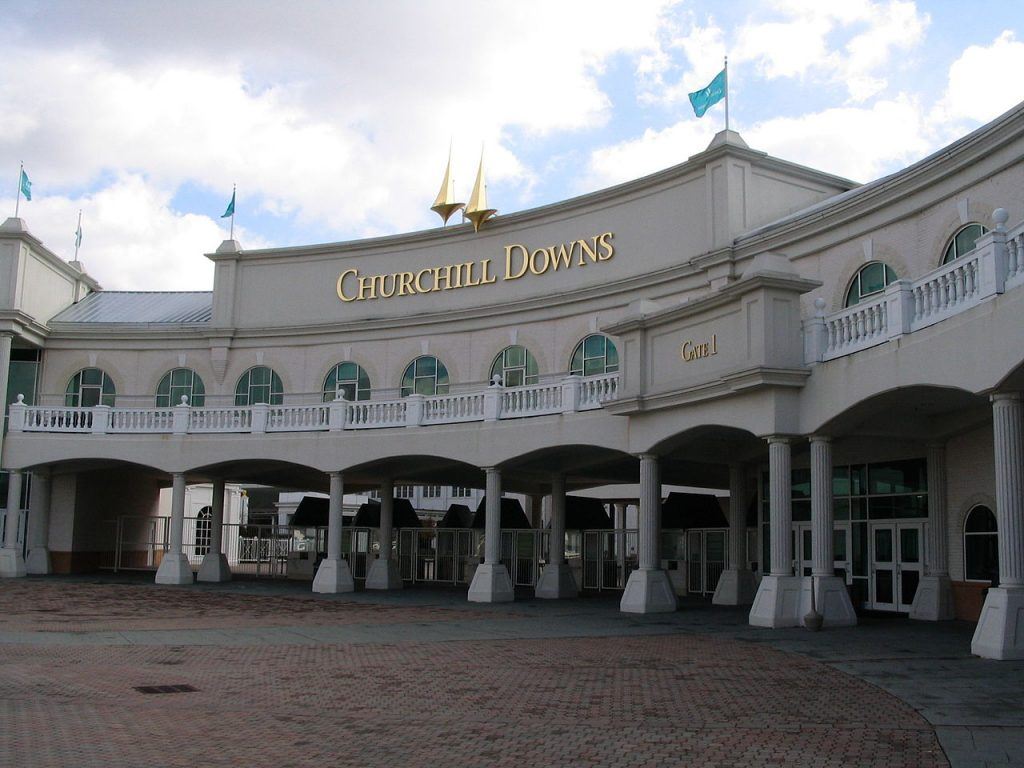Churchill Downs CEO Talks to Analysts About Coronavirus and Kentucky Derby, Indicates Preference for Retail Sports Betting on Quarterly Call
Posted on: February 28, 2020, 06:34h.
Last updated on: February 28, 2020, 04:53h.
Bill Carstanjen, CEO of Churchill Downs Inc., told analysts Thursday on a quarterly conference call that the Louisville-based gaming company is doing its due diligence when looking at the coronavirus and its possible impact on the Kentucky Derby.

The big race is a little more than two months away, and an analyst asked Carstanjen about the possible impact the virus might have, especially as Churchill officials look to draw more of an international flavor to the Derby.
Last year, Master Fencer became the first Japanese-bred horse to make the Derby field. He earned his way to Churchill Downs through a series of races similar – but on a smaller scale – to the Road to Kentucky Derby preps run in the US. The four-race Japanese series for this year’s Derby started in November, and an offspring of Triple Crown winner American Pharoah won the third race earlier this week.
Carstanjen isn’t worried about the coronavirus shrinking the field. If a Japanese horse doesn’t enter, the next eligible American horse would enter the field of 20 horses.
As for the event itself, which draws up to 150,000 on the day of the race and brings large crowds to the track on the days leading up to it, Carstanjen noted there are numerous major events taking place across the country between now and May 2.
“So we have a lot of time to monitor and learn and study the best protocols to put in place if it, in fact, becomes relevant for our events,” he said. “So our team will be very, very focused on that, and pay attention to that, just as we do every year to any other factors that we think potentially could impact us.”
Retail Sports Betting Driving Casino Gains
Carstanjen and other Churchill officials also shed light on the company’s sports betting operations. The CEO noted that retail sportsbooks led to increased slot and table play at the company’s two Mississippi casinos and Presque Isle Downs and Casino in Erie, Pa.
In 2019, Churchill Downs Inc.’s BetAmerica subsidiary generated $5 million in net revenue at its brick-and-mortar sportsbook locations.
“Because our cost of acquisition for retail sports betting customers is nominal, this portion of our sports betting business is very profitable before even considering the incremental slot and table game play,” he said.
Online, though, is a different matter.
BetAmerica has a mobile betting app for New Jersey customers, but Carstanjen said there have been some development issues that have kept the application from being available in Pennsylvania and in Indiana, where BetAmerica went live in late December.
Without an app, customers cannot use their mobile phones to place wagers online, meaning BetAmerica is only available through laptop and desktop computers.
As a result, BetAmerica’s online sportsbook in Indiana had a handle of just $89,622 in January, representing .07 percent of the total bet online in the state that month. In Pennsylvania, online accounted for about $1.2 million in handle for January, or about .37 percent of the state’s online betting.
“While we are operational, we have not yet spent a significant amount of marketing dollars anywhere, including Pennsylvania,” Carstanjen added. “Every day, we are improving our online product and hope to have the technology challenges resolved very soon.”
‘Expensive’ Digital World for Sports Betting
Carstanjen’s comments to investors certainly indicated that when it comes to sports betting, his preference is for the brick-and-mortar realm.
Since the cost of acquisition of the customer base within the casino is nominal compared to the cost of reaching potential customers in the online space, the margins are very good,” he told analysts. “So we like that, and we’ll do as much of that as we can. In the online space, so far, what we’ve seen, it can be expensive to acquire customers in the online space. It’s just an expensive digital world.
“We want to make sure our product is mature and performs as required, so it doesn’t disappoint the customers. And we want to make sure we develop data on the value of customers so that we can compare it carefully to the cost of those customers. So there are different theories to approach this business, and we respect everybody that’s made their choices on this. But from our company’s perspective, we are very data-driven, we are a very data-driven group. So we tend to be incremental. We tend to be careful. We tend to test and retest, and that can come at the expense of speed. But over the long term, we think we’ll have this data to make good decisions. So we’re going to plug along at a pace that makes sense for us and try to get better every quarter.”
That philosophy fits in with how Churchill implemented historical horse racing. While other Kentucky tracks jumped fairly quickly at the chance to offer the slot-like machines, Churchill Downs waited years before finally opening its first parlor, Derby City Gaming in 2018. Now the company has plans for HHR at all three of its Kentucky tracks and plans for a satellite facility in northern Kentucky.
Related News Articles
BetMGM, SportsGrid Unveil Content Partnership
Caesars Plans Sportsbook Truck Tour as Digital Marketing Efforts Shift Gears
Australia’s Betr Sportsbook Comes up Lame with Melbourne Cup Bettors
Disney CEO Bob Iger Lukewarm on Sports Betting
Most Popular
Mirage Las Vegas Demolition to Start Next Week, Atrium a Goner
Where All the Mirage Relics Will Go
Most Commented
-
Bally’s Facing Five Months of Daily Demolition for Chicago Casino
— June 18, 2024 — 12 Comments
















No comments yet